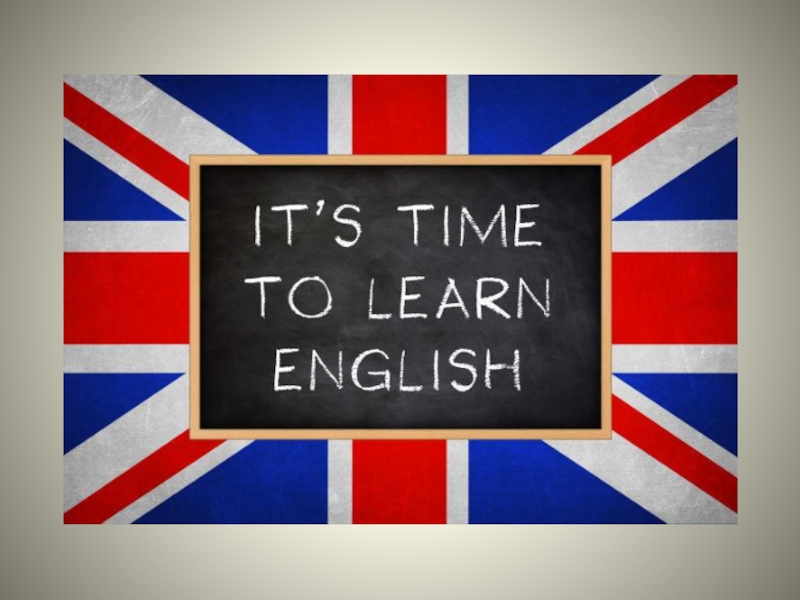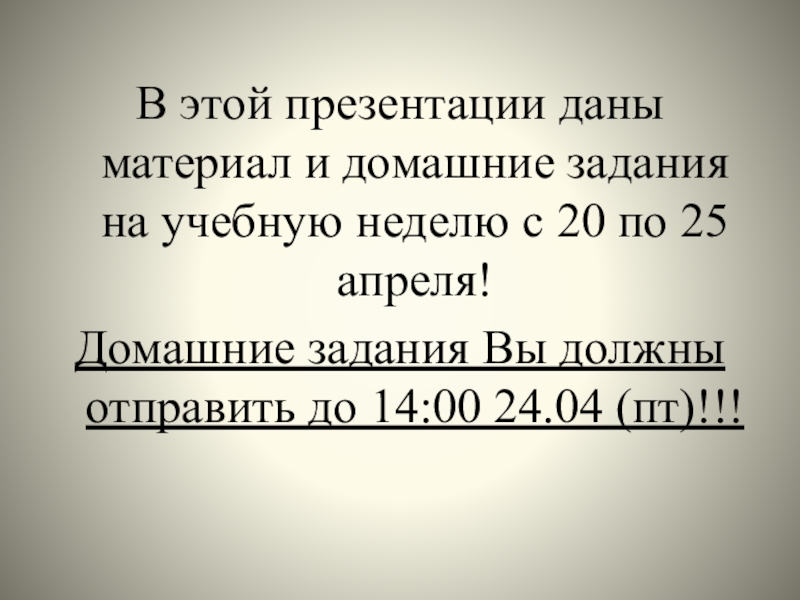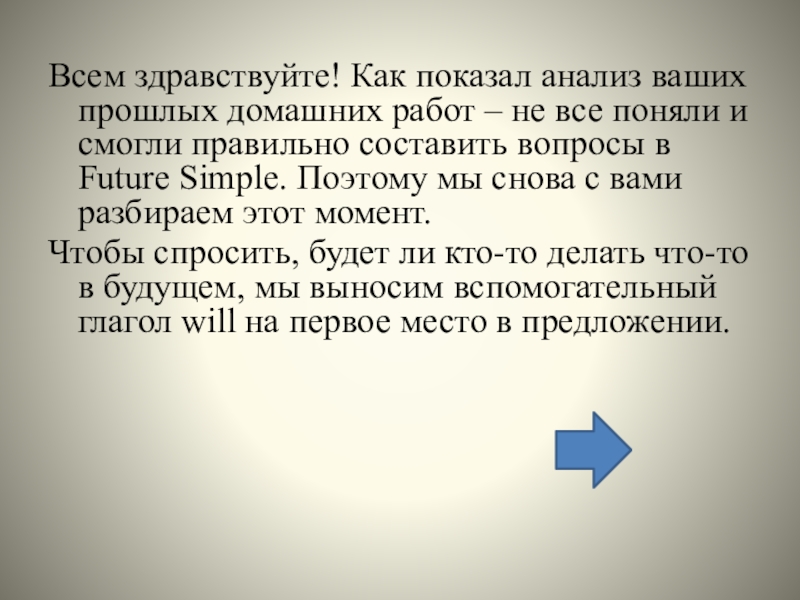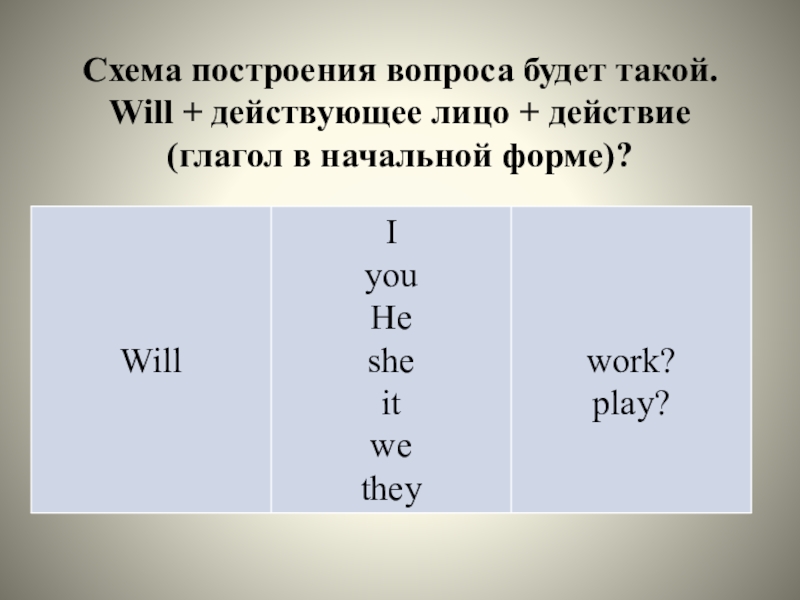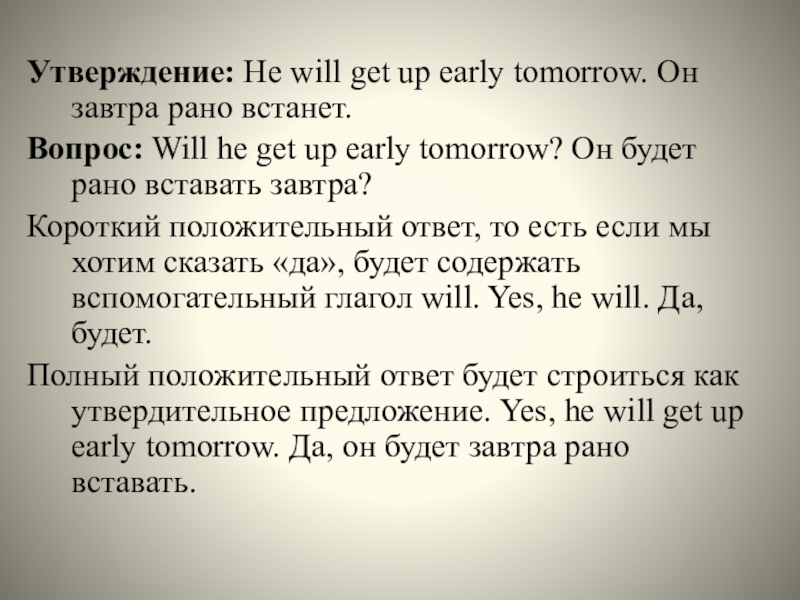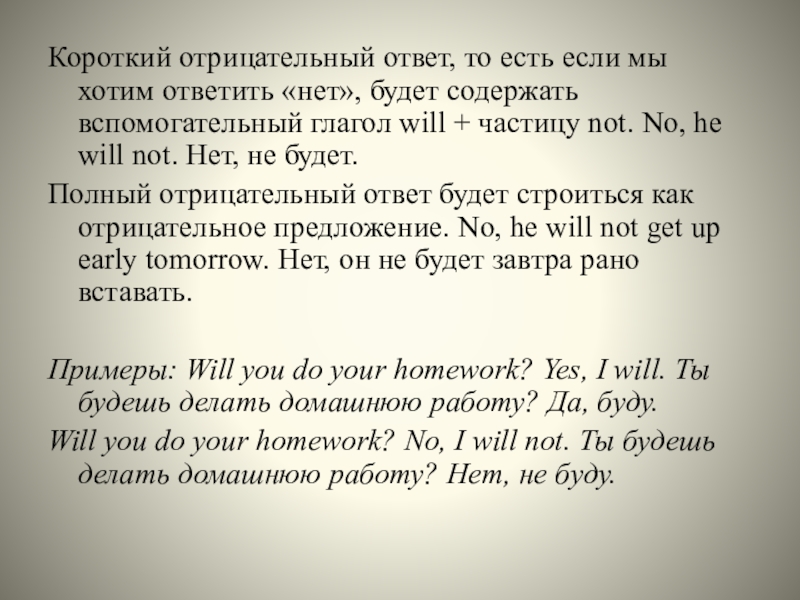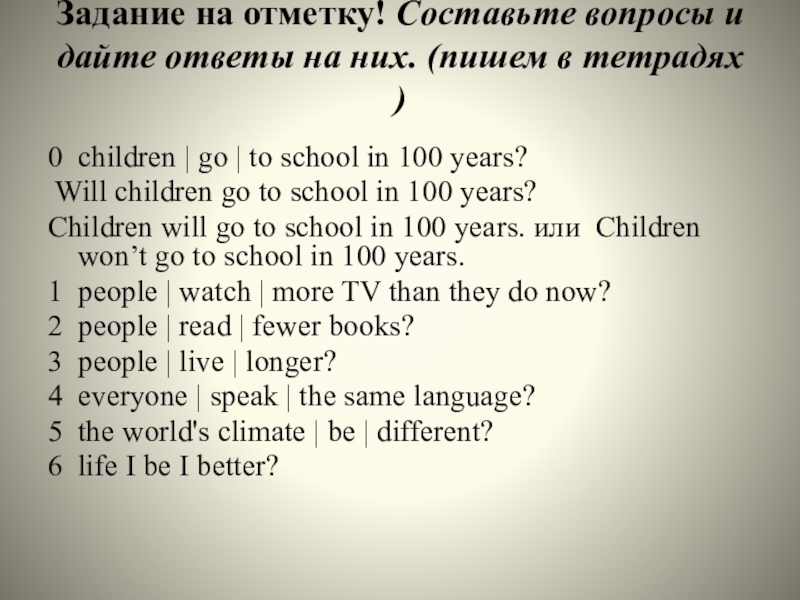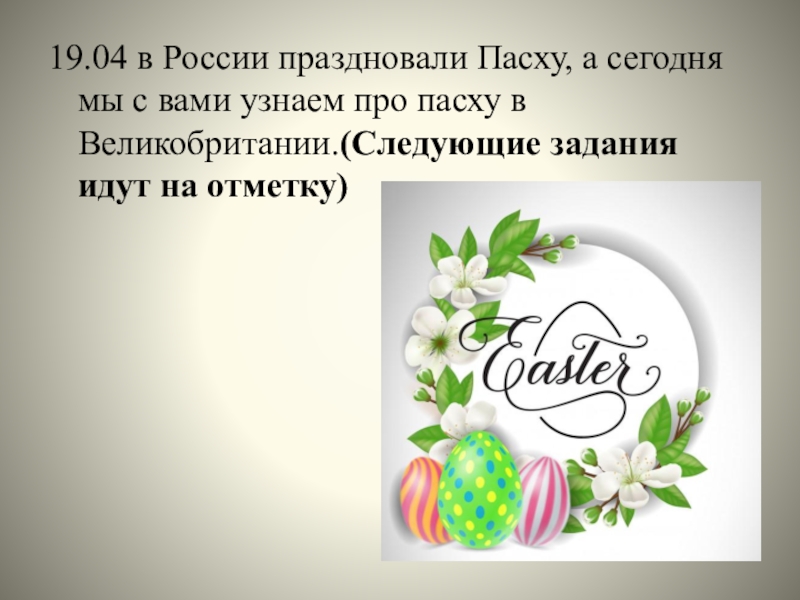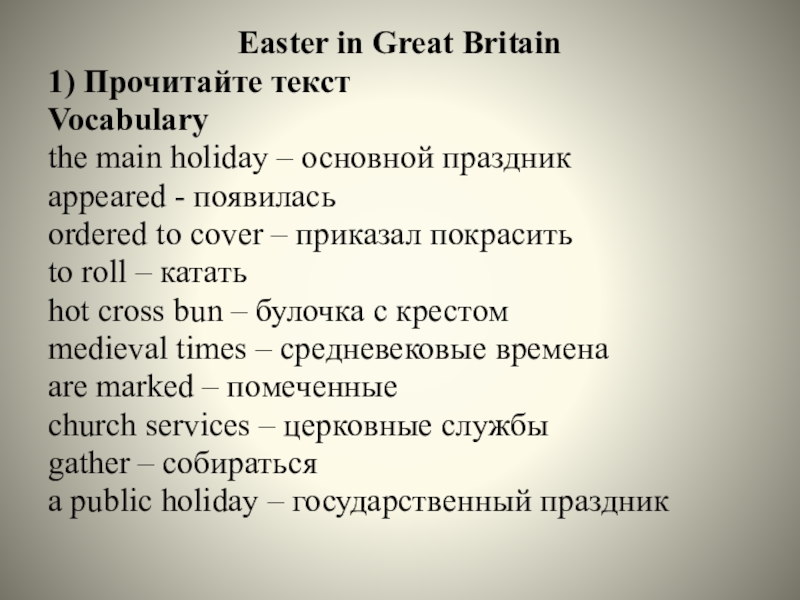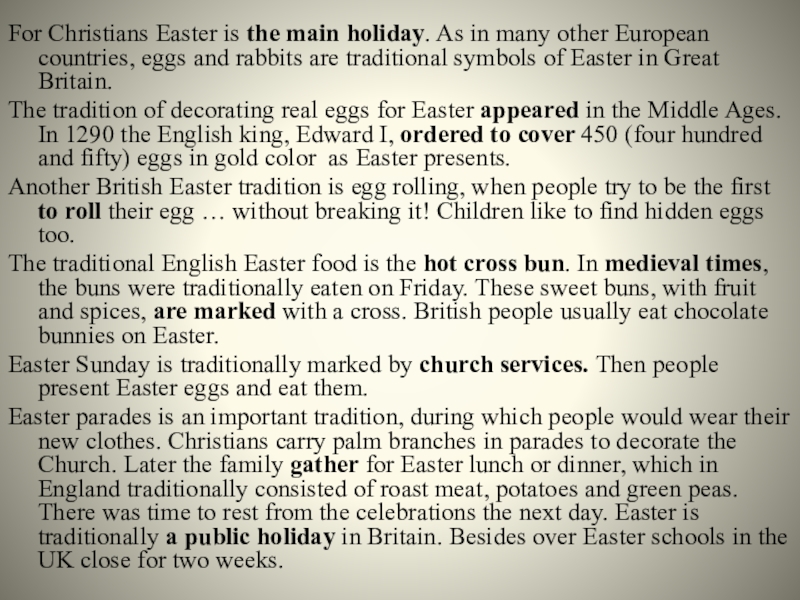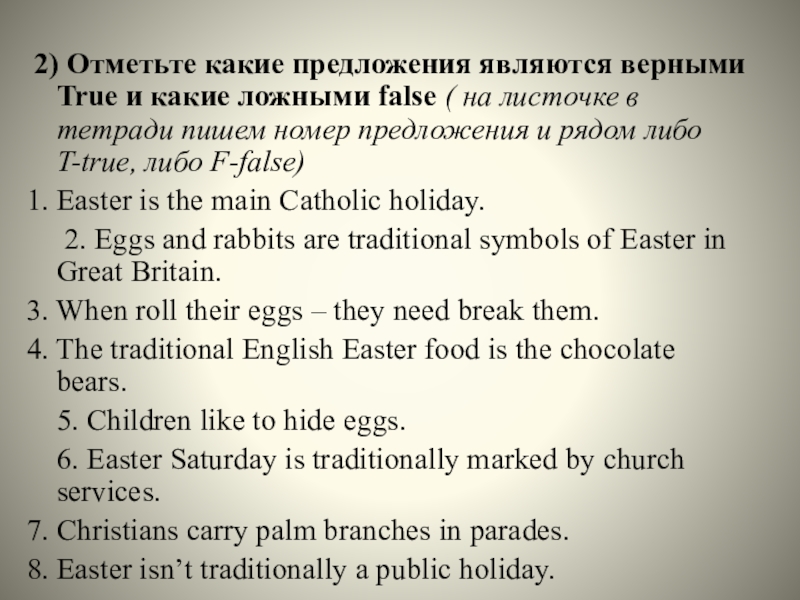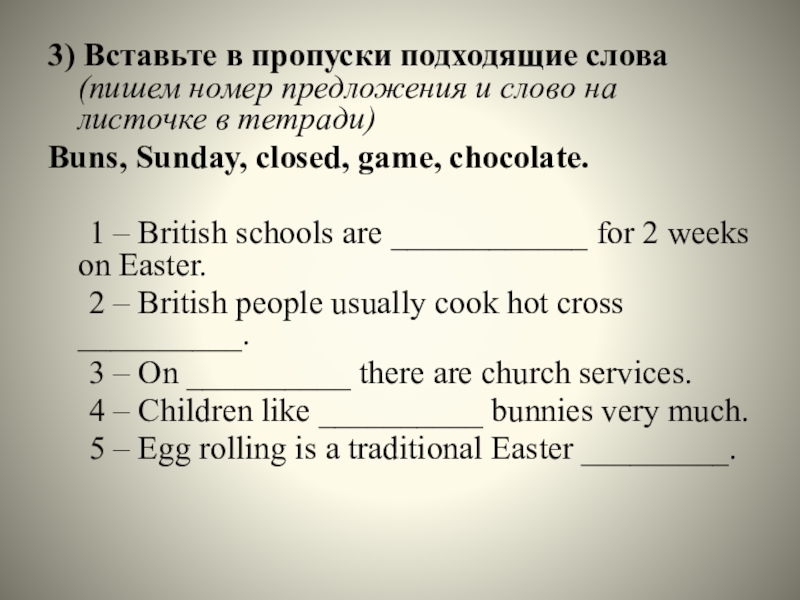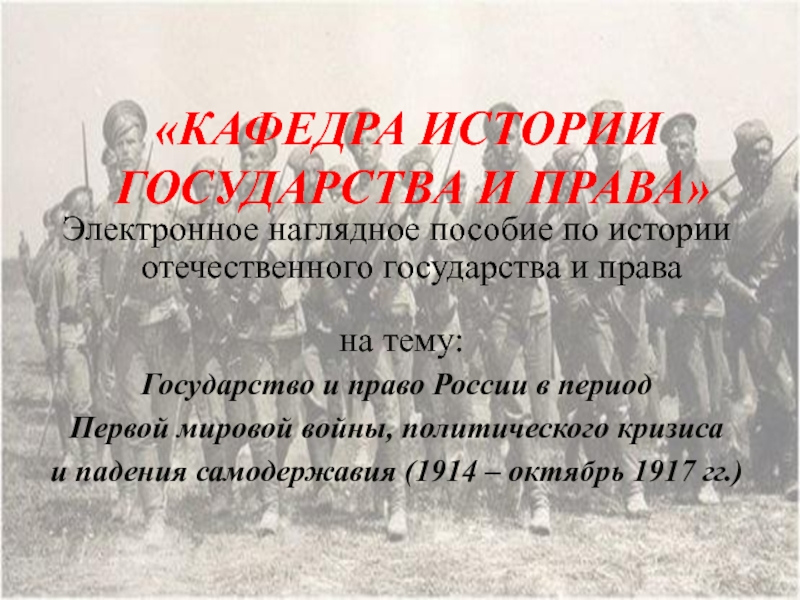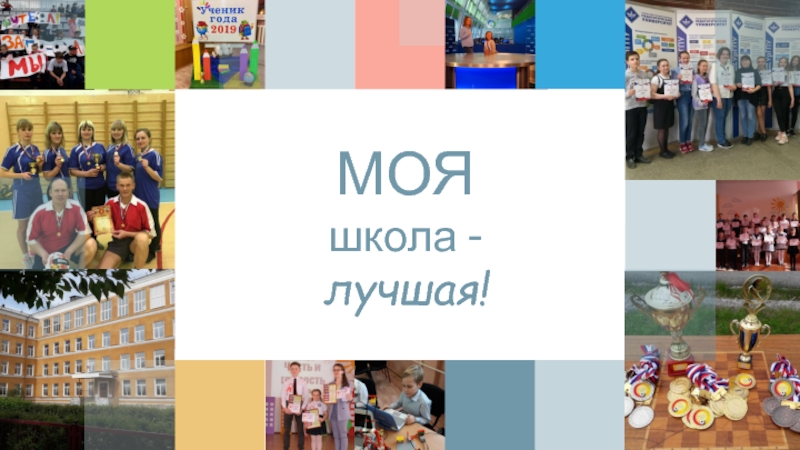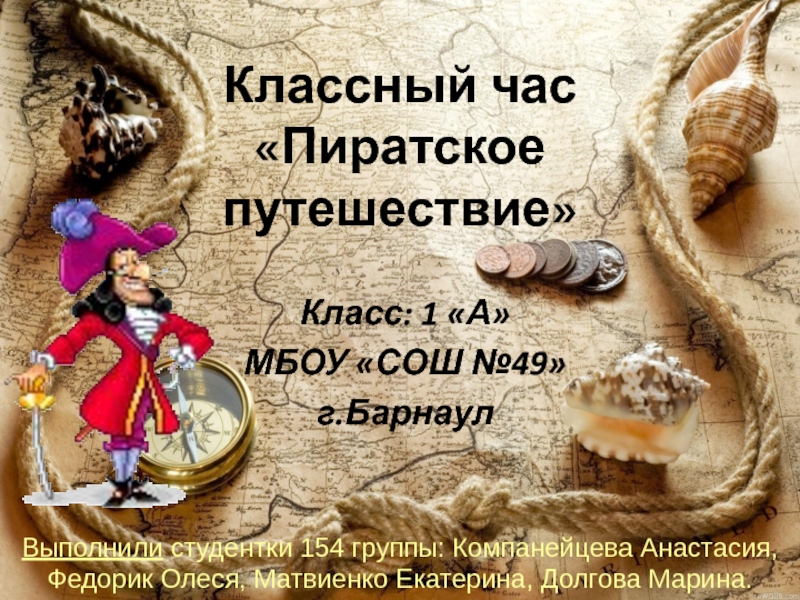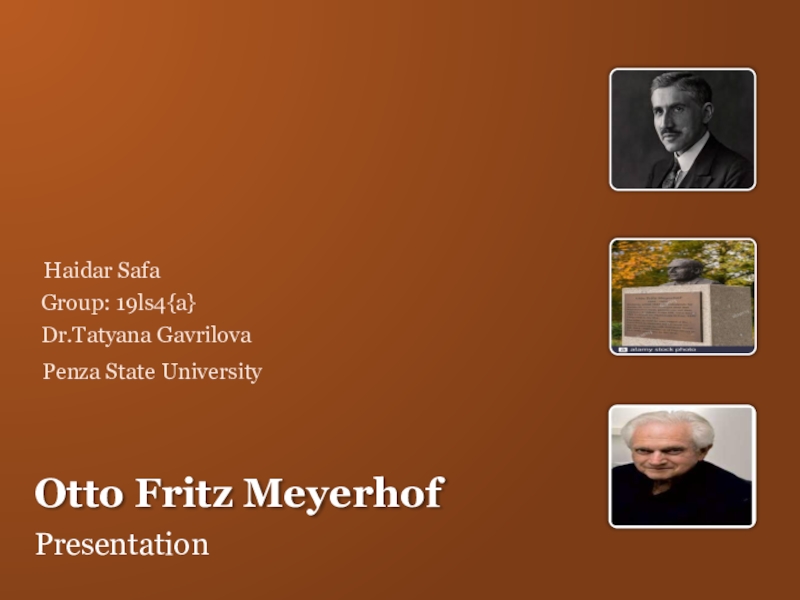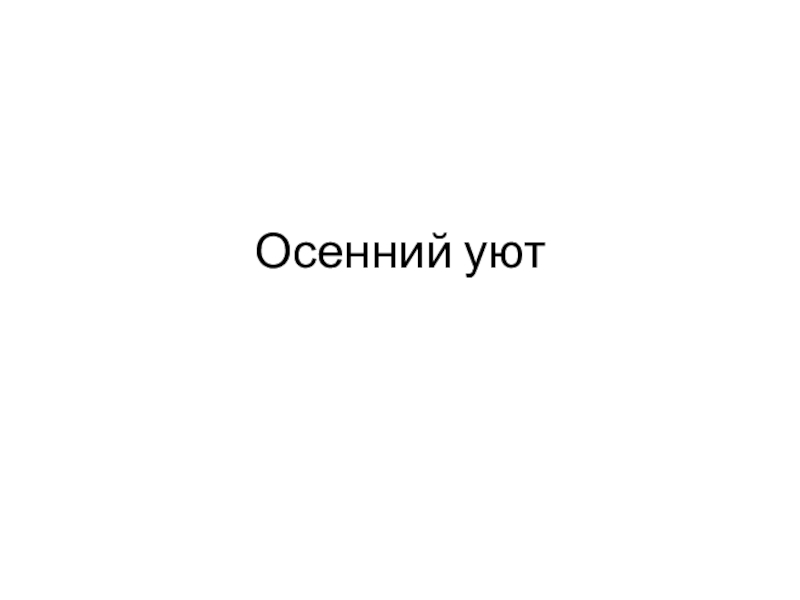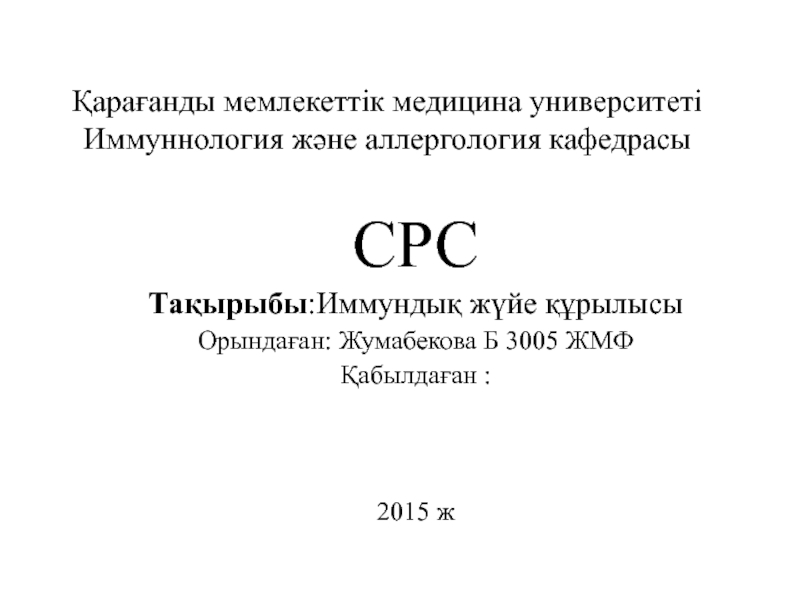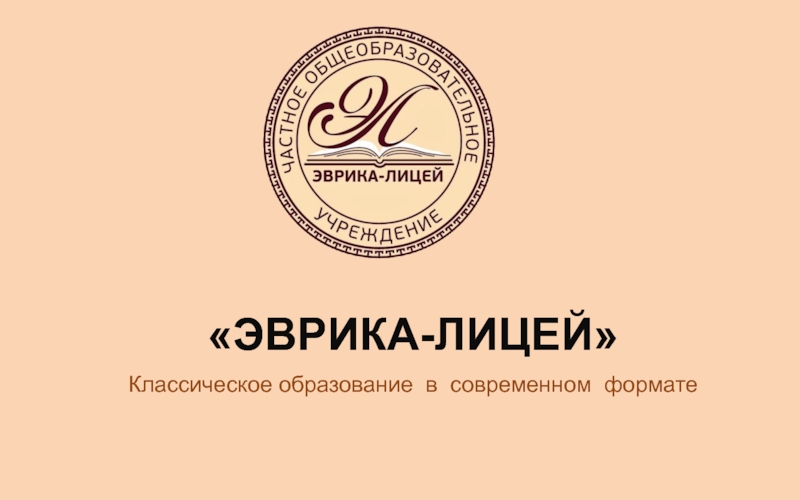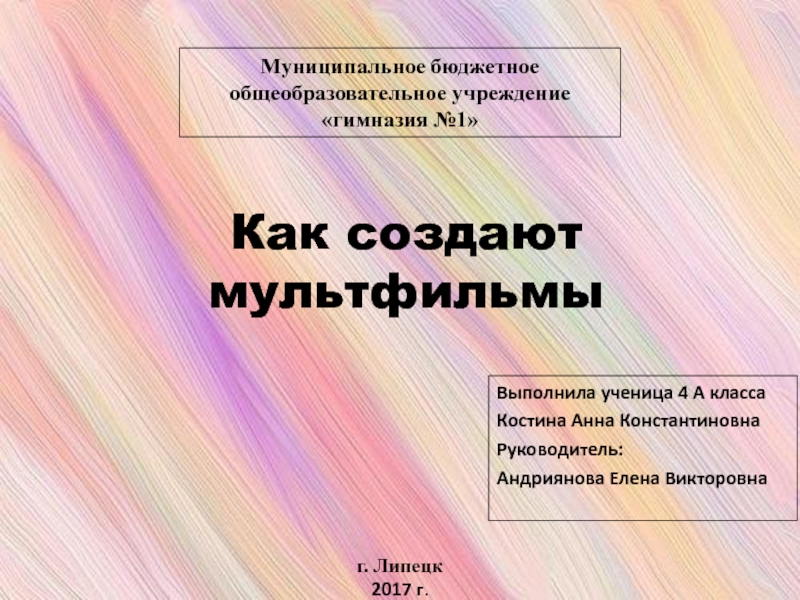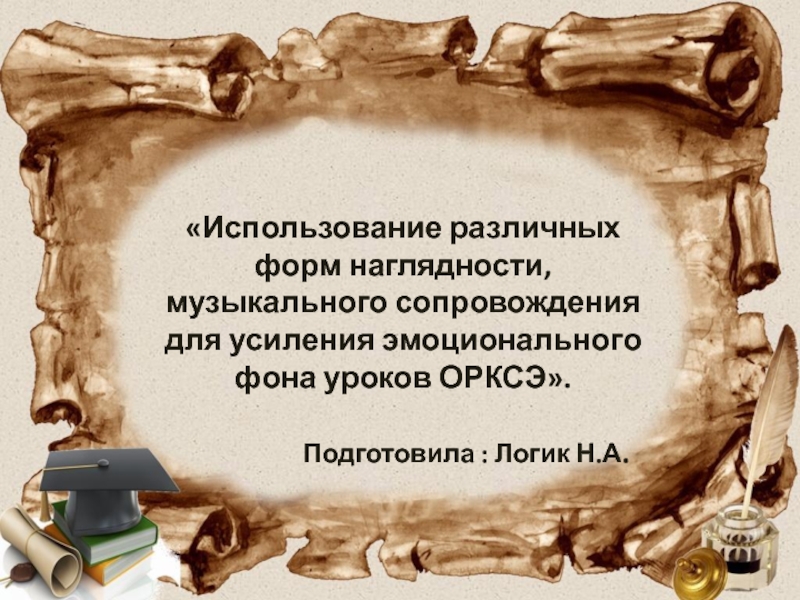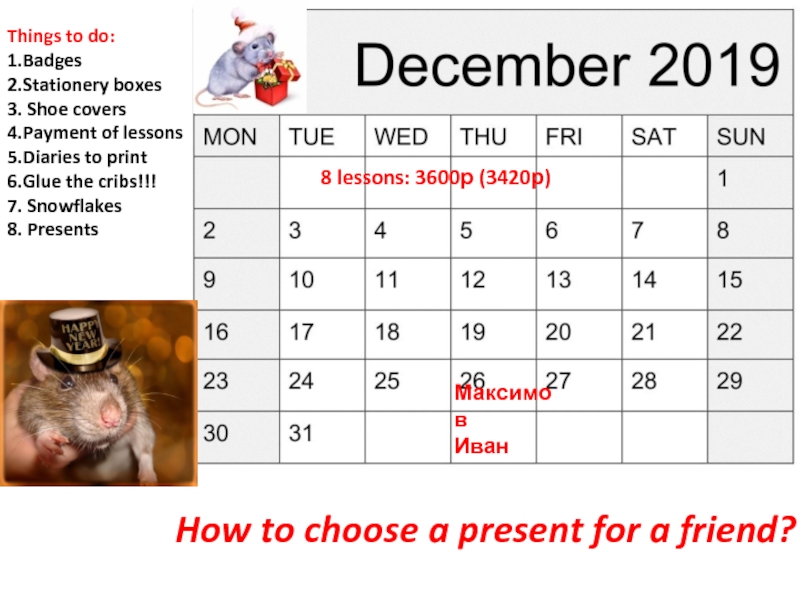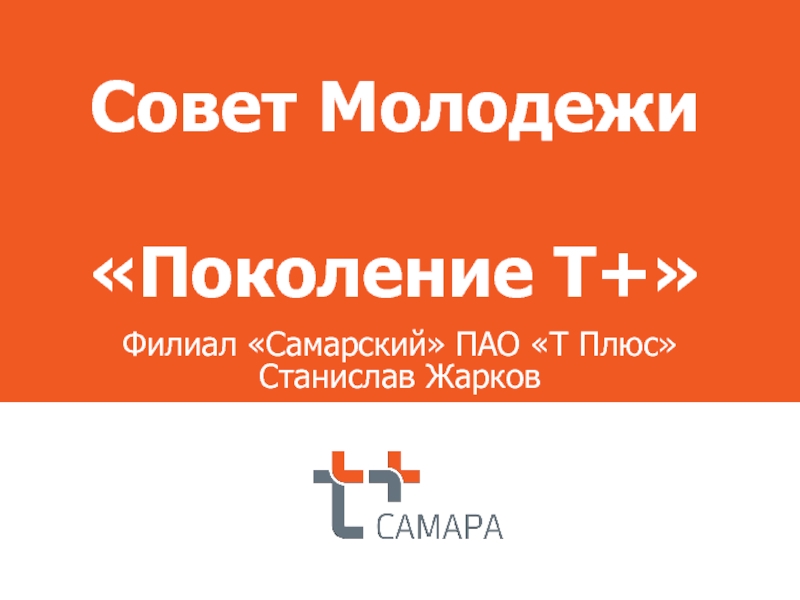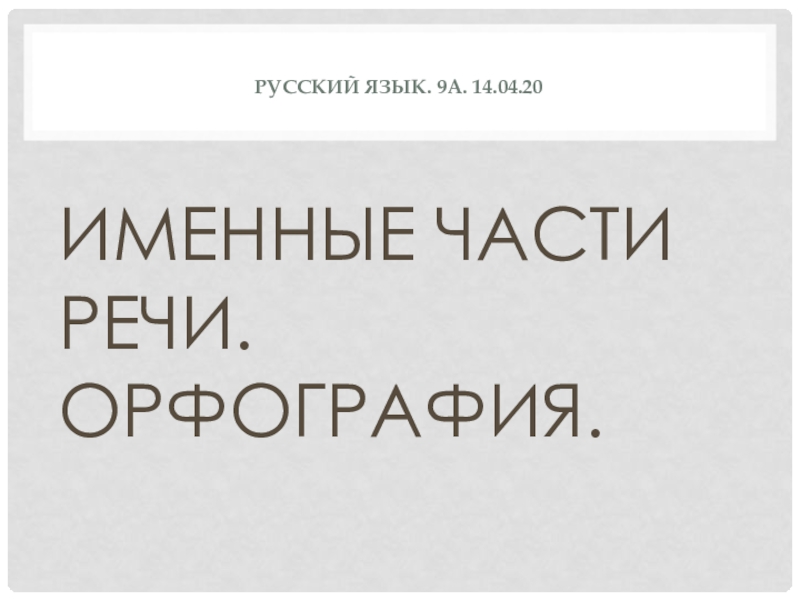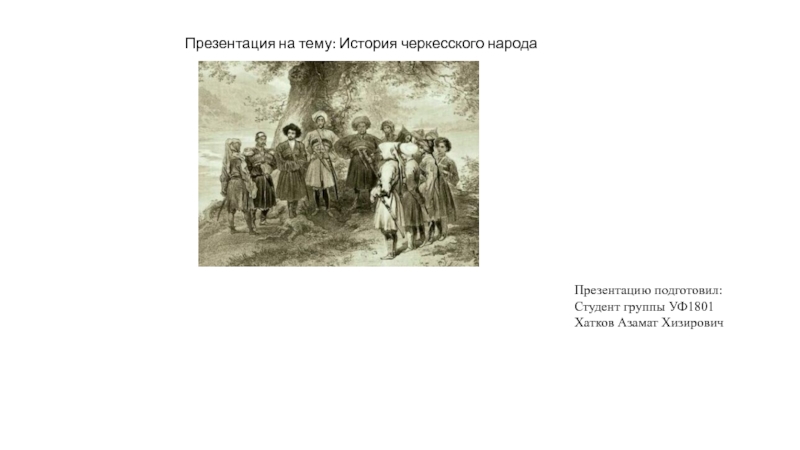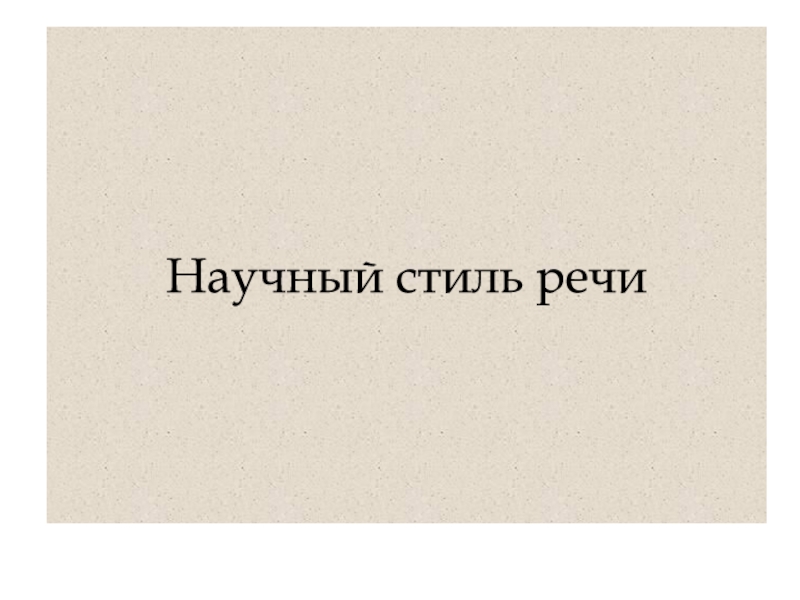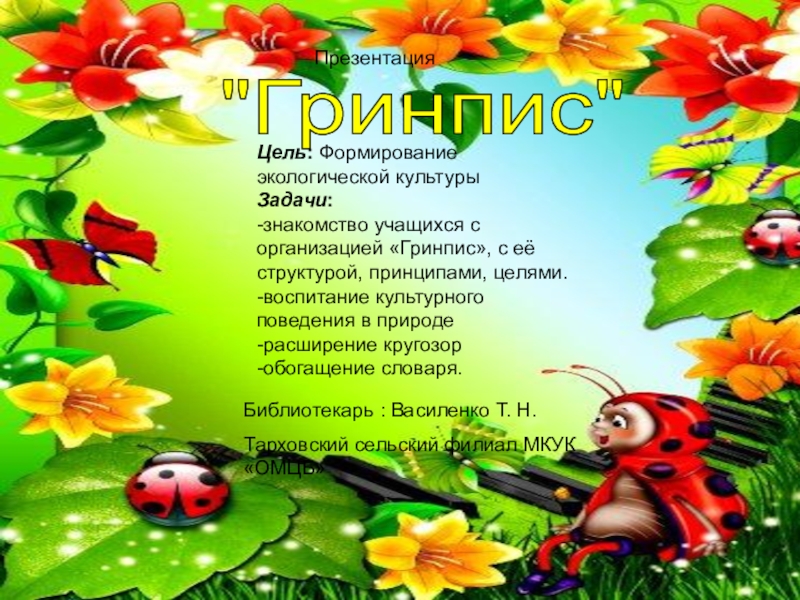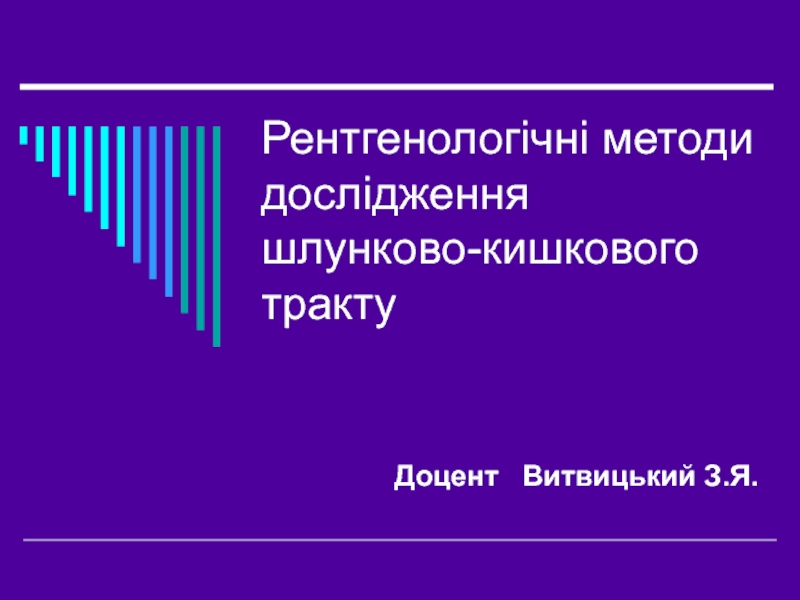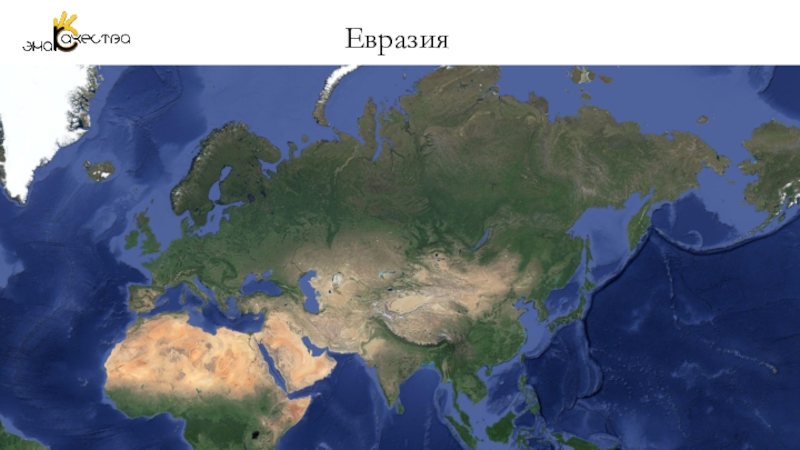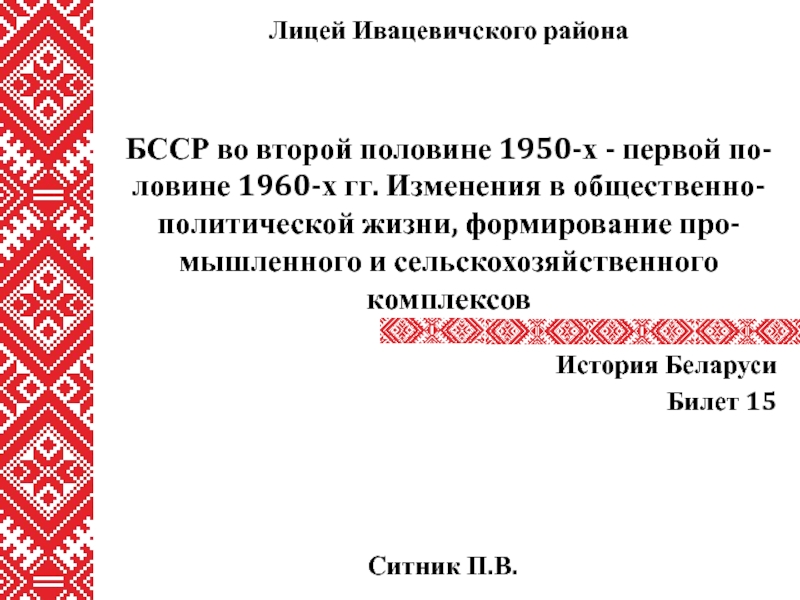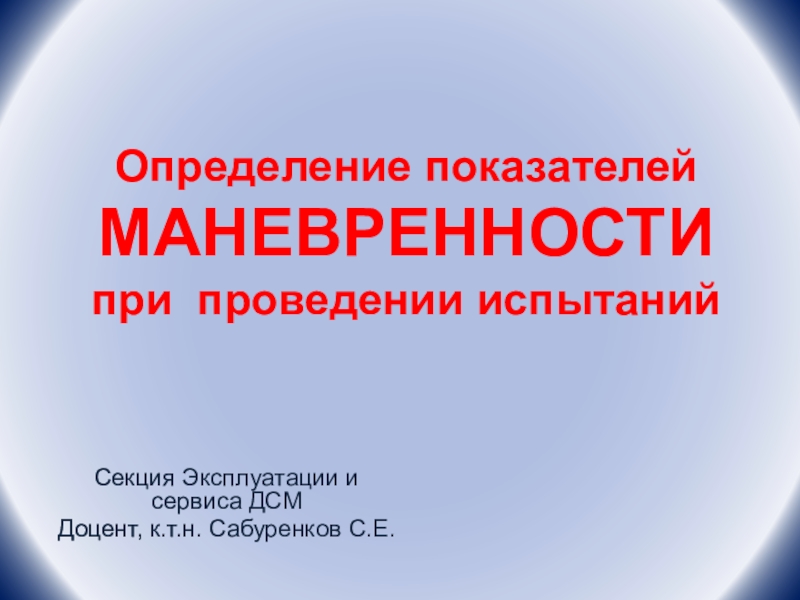Разделы презентаций
- Разное
- Английский язык
- Астрономия
- Алгебра
- Биология
- География
- Геометрия
- Детские презентации
- Информатика
- История
- Литература
- Математика
- Медицина
- Менеджмент
- Музыка
- МХК
- Немецкий язык
- ОБЖ
- Обществознание
- Окружающий мир
- Педагогика
- Русский язык
- Технология
- Физика
- Философия
- Химия
- Шаблоны, картинки для презентаций
- Экология
- Экономика
- Юриспруденция
5 класс (1)
Содержание
- 1. 5 класс (1)
- 2. В этой презентации даны материал и домашние
- 3. ПовторениеВопрос в Future Simple
- 4. Всем здравствуйте! Как показал анализ ваших прошлых
- 5. Схема построения вопроса будет такой.Will + действующее лицо + действие (глагол в начальной форме)?
- 6. Утверждение: He will get up early tomorrow.
- 7. Короткий отрицательный ответ, то есть если мы
- 8. Задание на отметку! Составьте вопросы и дайте
- 9. 19.04 в России праздновали Пасху, а сегодня
- 10. Easter in Great Britain1) Прочитайте текстVocabularythe main
- 11. For Christians Easter is the main holiday.
- 12. 2) Отметьте какие предложения являются верными
- 13. 3) Вставьте в пропуски подходящие слова (пишем
- 14. Слайд 14
- 15. Скачать презентанцию
В этой презентации даны материал и домашние задания на учебную неделю с 20 по 25 апреля! Домашние задания Вы должны отправить до 14:00 24.04 (пт)!!!
Слайды и текст этой презентации
Слайд 2В этой презентации даны материал и домашние задания на учебную
неделю с 20 по 25 апреля!
отправить до 14:00 24.04 (пт)!!!Слайд 4Всем здравствуйте! Как показал анализ ваших прошлых домашних работ –
не все поняли и смогли правильно составить вопросы в Future
Simple. Поэтому мы снова с вами разбираем этот момент.Чтобы спросить, будет ли кто-то делать что-то в будущем, мы выносим вспомогательный глагол will на первое место в предложении.
Слайд 5Схема построения вопроса будет такой.
Will + действующее лицо + действие
(глагол в начальной форме)?
Слайд 6Утверждение: He will get up early tomorrow. Он завтра рано
встанет.
Вопрос: Will he get up early tomorrow? Он будет
рано вставать завтра? Короткий положительный ответ, то есть если мы хотим сказать «да», будет содержать вспомогательный глагол will. Yes, he will. Да, будет.
Полный положительный ответ будет строиться как утвердительное предложение. Yes, he will get up early tomorrow. Да, он будет завтра рано вставать.
Слайд 7Короткий отрицательный ответ, то есть если мы хотим ответить «нет»,
будет содержать вспомогательный глагол will + частицу not. No, he
will not. Нет, не будет.Полный отрицательный ответ будет строиться как отрицательное предложение. No, he will not get up early tomorrow. Нет, он не будет завтра рано вставать.
Примеры: Will you do your homework? Yes, I will. Ты будешь делать домашнюю работу? Да, буду.
Will you do your homework? No, I will not. Ты будешь делать домашнюю работу? Нет, не буду.
Слайд 8Задание на отметку! Составьте вопросы и дайте ответы на них.
(пишем в тетрадях )
0 children | go | to school
in 100 years?Will children go to school in 100 years?
Children will go to school in 100 years. или Children won’t go to school in 100 years.
1 people | watch | more TV than they do now?
2 people | read | fewer books?
3 people | live | longer?
4 everyone | speak | the same language?
5 the world's climate | be | different?
6 life I be I better?
Слайд 919.04 в России праздновали Пасху, а сегодня мы с вами
узнаем про пасху в Великобритании.(Следующие задания идут на отметку)
Слайд 10Easter in Great Britain
1) Прочитайте текст
Vocabulary
the main holiday – основной
праздник
appeared - появилась
ordered to cover – приказал покрасить
to roll –
кататьhot cross bun – булочка с крестом
medieval times – средневековые времена
are marked – помеченные
church services – церковные службы
gather – собираться
a public holiday – государственный праздник
Слайд 11For Christians Easter is the main holiday. As in many
other European countries, eggs and rabbits are traditional symbols of
Easter in Great Britain.The tradition of decorating real eggs for Easter appeared in the Middle Ages. In 1290 the English king, Edward I, ordered to cover 450 (four hundred and fifty) eggs in gold color as Easter presents.
Another British Easter tradition is egg rolling, when people try to be the first to roll their egg … without breaking it! Children like to find hidden eggs too.
The traditional English Easter food is the hot cross bun. In medieval times, the buns were traditionally eaten on Friday. These sweet buns, with fruit and spices, are marked with a cross. British people usually eat chocolate bunnies on Easter.
Easter Sunday is traditionally marked by church services. Then people present Easter eggs and eat them.
Easter parades is an important tradition, during which people would wear their new clothes. Christians carry palm branches in parades to decorate the Church. Later the family gather for Easter lunch or dinner, which in England traditionally consisted of roast meat, potatoes and green peas. There was time to rest from the celebrations the next day. Easter is traditionally a public holiday in Britain. Besides over Easter schools in the UK close for two weeks.
Слайд 12 2) Отметьте какие предложения являются верными True и какие
ложными false ( на листочке в тетради пишем номер предложения
и рядом либо T-true, либо F-false)1. Easter is the main Catholic holiday.
2. Eggs and rabbits are traditional symbols of Easter in Great Britain.
3. When roll their eggs – they need break them.
4. The traditional English Easter food is the chocolate bears.
5. Children like to hide eggs.
6. Easter Saturday is traditionally marked by church services.
7. Christians carry palm branches in parades.
8. Easter isn’t traditionally a public holiday.
Слайд 133) Вставьте в пропуски подходящие слова (пишем номер предложения и
слово на листочке в тетради)
Buns, Sunday, closed, game, chocolate.
1 – British schools are ____________ for 2 weeks on Easter. 2 – British people usually cook hot cross __________.
3 – On __________ there are church services.
4 – Children like __________ bunnies very much.
5 – Egg rolling is a traditional Easter _________.
